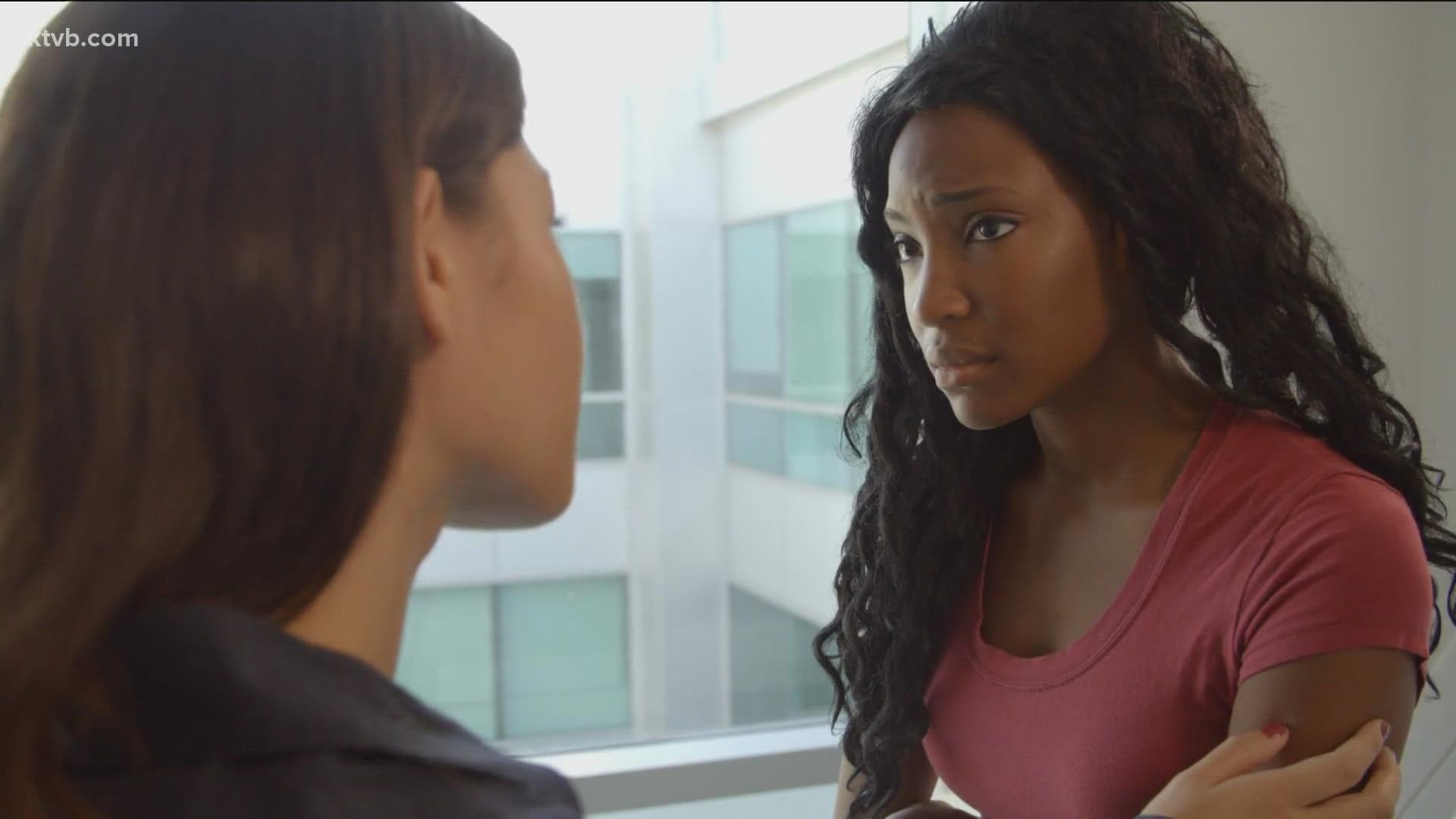BOISE, Idaho — Black History Month serves as a time to celebrate the culture and the accomplishments in our communities, but it’s also a time to talk about some issues that rarely get discussed, like mental health.
Boys and Girls Clubs' Licensed Professional Counselor, Dynisha Smith said, “A lot of the stigma was still around that idea that when we're going through something in our house, it's going to stay in our house. Or we'll go to church and take it to the pastor, and we'll get help that way.”
With the COVID-19 pandemic came a spike in people dealing with mental health issues. Shontae Cone, a Licensed Professional Counselor at Hip & Happy LLC, said that increase is being seen in the Gem State’s Black community.
"I do think that they are hit harder with mental health issues predominantly right now. The Black culture, Black people, multicultural, and biracial people have been hit hard with mental health issues,” Cone said.
But there are obstacles that prevent some Black people from asking for help. According to the National Alliance on Mental Illness, 63% of Black people believe a mental health condition is a sign of weakness.
"It's viewed as something is wrong with me and I'm going to go because something is wrong with me. So, it's very hard to get people comfortable with that,” Cone said.
Another obstacle is the lack of Black mental health specialists in the state.
"Last time I checked, I counted everyone. There is less than a baker's dozen of Black counselors in Idaho -- all across Idaho, not just in the Treasure Valley. It's difficult. People are full and have waitlists. It's difficult for providers because we want to support Black mental health and there is just not enough of us.” Smith said.
Cone said it's important for people to be able to talk to someone who can understand their cultural background. That means having access to more Black mental health providers is crucial in our community.
Both Cone and Smith encourage anyone who may be struggling with mental health to seek help.
“Come and have a conversation with someone and let someone say, 'thank you for sharing, that was so brave and here is what I'm going to tell you about what I know about what you shared with me.' So, you can get a validation of your experience,” Cone said.
"Battle the stigma, battle the uncertainty, and fight for yourself, because that is what it is about. You are worth that and you are worth living,” Smith said.
Here is a list of Idaho's Black, African and African American mental health providers.
Watch more Local News:
See the latest news from around the Treasure Valley and the Gem State in our YouTube playlist:

